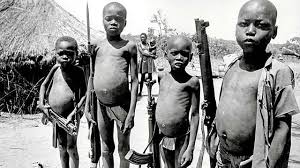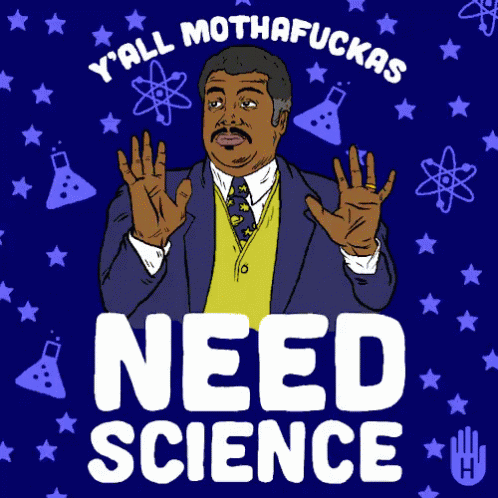(a) In her 2011 article, Dr. Cindi Katz presents an interesting and thought-provoking theory for analyzing the current trends and causes of social injustices. Katz uses powerful and targeted language to make her points. For example, terms like “symptomatic silences”, “naturalized struggles”, “braided class”, “disposable futures”, “cannibalizing labor”, and “thick bloody integument” are all indicative of the visceral response she targets in her readers.
Katz’ theory of unjust social reproduction describes three major components:
1) Neoliberal capitalism and its overaccumulation crisis. Within this constituent, Katz focuses on how responsibility has shifted from the state to the individual, which enables blame for poverty to be designated to the “self-sufficient self.” Furthermore, dispossession (which leads to social reproduction) is accomplished via privatizing common resources.
2) Childhood as spectacle, is the term that Katz uses to explain that under the neoliberal agenda, childhood is seen as “a commodity, as ornament and as waste.” In this sense, children have little value in their present state.
3) Children as waste. There are several ways in which children are wasted: school to prison pipeline, the militarization of youth, and extremely/debilitating labor.

To me, the most significant and eye-opening component of Katz’ theory is the explicit connection between children’s play time and the potential change of society. Since children play in ways which are imaginative and therefore question world structures, there are opportunities for children (which eventually will grow up) to recognize that ALL social constructs are also made up and flexible. She writes: “Playing at something has a fugitive or fleeting aspect that can spark a recognition that even the original is made up - a performance - and might be made different.” Lastly, I find myself in complete agreement with her theoretical lens through which childhood with its “revolutionary imagination” is a pivotal time of promise rather than its current appreciation as waste.
(b) As a researcher, I am interested in science education as a conduit for social justice. When Katz describes children’s play as an avenue for rethinking social constructs (and therefore, reality for humans) I see a parallel with science education which holds true potential for changing students’ ideas about our world. In thinking about the significance of challenging social constructs by using science, I am reminded of Carl Sagan when he wrote: “Every kid starts out as a natural-born scientist, and then we beat it out of them. A few trickle through the system with their wonder and enthusiasm for science intact.” As well as Neil Degrasse Tyson when he said: “a scientist is just a kid who never grew up.” Both of them capture the essence of curiosity and wonder - both essential components of playing. Analyzing the ways in which Katz’ ideas connect with my research interests, I can connect the wasted potential of my students with the social reproduction of classes. Science with its specialized language and demands for submission while learning it, is usually oppressive to the type of students I serve. On the other hand, if students can appreciate that scientific knowledge is not culminating, but instead ongoing and dynamic, then students can begin to see that they too can utilize its approaches to not only understand the natural world, but also the social constructs which dictate much of our daily lives.
Lastly, Katz warning about wasted childhoods: "We are all in this together and the loss of anyone's creativity or creative potential is a tragedy of the commons, a loss to our common future." is a reminder that we don’t need women and minorities in the sciences just because it is politically correct, but more importantly, we need them because they have a different experiential filter which will see problems and solutions that are out of the reach of those people (wealthy white men) who traditionally have had access to science.
Here is Dr. Tyson addressing women in science:
Here is Dr. Tyson addressing women in science:




I appreciated your insight into the play aspect of the article. I wrote in my blog that she lost me in this section of the reading. I did not understand the connection between play, imagination and Marx. After reading what you wrote there, it feels a little like Vygotsky when she writes about play. Can you help me understand the connection she was making between Marx and play, because I was trying to understand if she was referring to play as a form of capitalism? I can't wait to hear your thoughts in class about the pipeline and how you see this playing out in the school you teach at.
ReplyDeleteThought-provoking connection to Vygotsky, Chiquita -- I want to hear more. We'll unpack "play" in class for sure.
DeleteHi David,
ReplyDeleteI appreciate the summary and the connections you make between the revolutionary potential of play and that of science education. It's interesting to me because science education and STEM are so directly linked to capitalist aims -- and we hear this so much in the discourse -- and yet science can be anti-capitalist too. That is, what does a science education look like that is not just about diversifying the STEM workforce and maintaining capitalism by working out some of its race/gender contradictions -- but rather a science class that was "non-instrumental" and incorporates "play" in ways that foster the radical imagination and a reworking of work...
I love the idea of science education that incorporates "play"! I really want my students to play with concepts/ideas in order for them to play with the rules of society.
DeleteHi David,
ReplyDeleteI appreciated how Katz talks about the importance of play as an essential component of child development. With so much stress on academic standards and high expectations, teachers feel there is little room for students to engage in creative, playful activities. I hear those frustrations frequently from the kindergarten teachers I work with. For the early ages its an important time to develop imaginative and social skills with their peers. At later stages this practice can prepare students to become independent thinkers and most importantly inquirers - where they are curious, ask questions, and are in control of their own learning. I'm sure you're also confronted with the stress of district mandates to increase student performance.
I found the language she used to describe how children are viewed pretty strong. I had a difficult time with her analogy of considering children as waste. I understood her argument of how children are not considered a commodity within the capitalist mentality, especially those from marginalized groups - poor, Black, Latino urban children. Enrichment programs in schools such as music and art are continuously being cut and deemed inessential since they are not standards based and don't teach core curriculum. Having inquiry based education with enriching opportunities for play, art and music, children will be well equipped to take on challenges and be active citizens. This will confront the mentality of children being considered "waste".